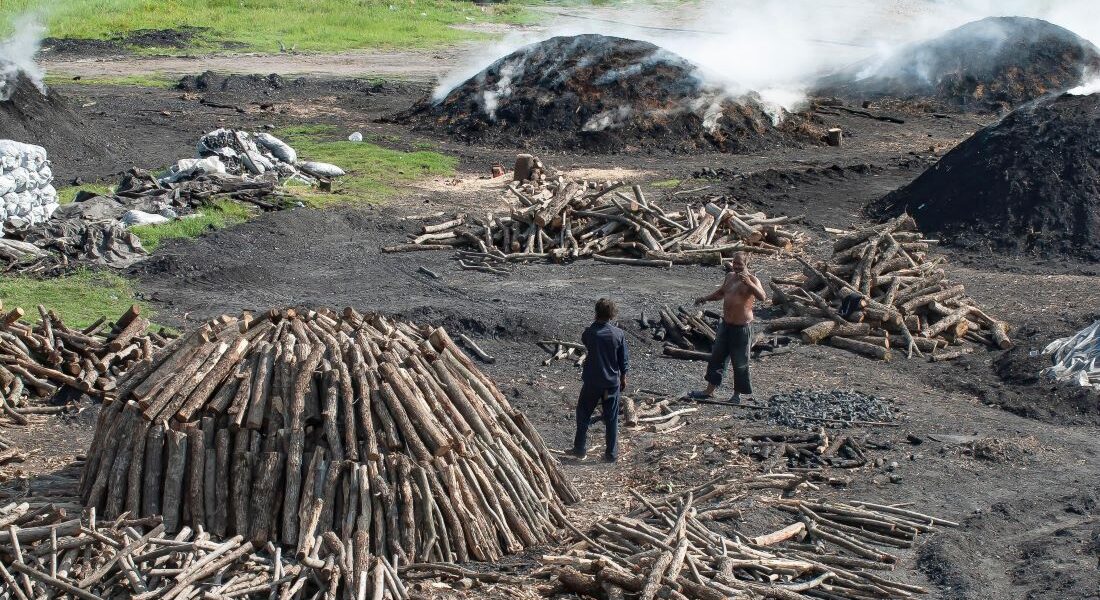
- Environmental Impact
- Millions of trees are cut annually for wood and charcoal production, accelerating deforestation and habitat loss.
- Charcoal production depletes soil organisms and destroys soil fertility.
- Health Risks
- The production and use of charcoal release harmful gases, including methane, carbon monoxide, and particulate matter, which harm both the environment and human health.
- Prolonged exposure to smoke from wood and charcoal cooking stoves increases respiratory and cardiovascular health risks.
- Contribution to Global Warming
- Burning wood and charcoal emits carbon dioxide and other greenhouse gases, contributing to climate change and global warming.
- Reduce Deforestation
- Decrease the number of trees cut down annually by providing accessible and sustainable energy alternatives.
- Mitigate Climate Change
- Lower carbon emissions by replacing wood and charcoal with cleaner, renewable energy sources.
- Improve Health Outcomes
- Reduce indoor air pollution and associated health risks by promoting cleaner cooking technologies.
- Empower Communities
- Train and equip communities to adopt and sustain the use of alternative energy solutions.
- Promoting Cleaner Cooking Technologies
- Introduce energy-efficient cookstoves that require less fuel and produce fewer emissions.
- Solar Energy Solutions
- Advocate for and support the adoption of solar-powered cooking and lighting systems in rural and urban households.
- Biogas Programs
- Facilitate the installation of biogas digesters in communities, turning organic waste into clean cooking fuel.
- Education and Sensitization Campaigns
- Raise awareness about the environmental and health impacts of wood fuel dependence and the benefits of transitioning to alternative energy sources.
- Research and Partnerships
- Collaborate with organizations and governments to research and implement innovative, low-cost, and culturally appropriate energy alternatives.
- Environmental Benefits: Significant reduction in deforestation and greenhouse gas emissions.
- Health Improvements: Lower incidence of respiratory and cardiovascular diseases caused by smoke inhalation.
- Economic Impact: Reduction in household energy costs and creation of new jobs in the clean energy sector.
- Empowered Communities: Increased awareness and capacity to adopt and sustain renewable energy solutions.
In Africa, wood and charcoal are the primary energy sources for domestic cooking, with over 90% of households relying on these fuels. This reliance contributes significantly to deforestation, environmental degradation, and greenhouse gas emissions, creating a pressing need for sustainable alternatives.
The Hazards of Wood and Charcoal Fuel
Our Goals and Objectives
Key Activities
Expected Outcomes
Our Impact
Transitioning from wood and charcoal to sustainable energy sources is critical to protecting Africa’s forests, addressing climate change, and improving public health. This program seeks to provide viable and scalable solutions that align with the continent’s energy needs while preserving its natural resources for future generations.
.
Current Projects
The list will be updated once projects are completed
